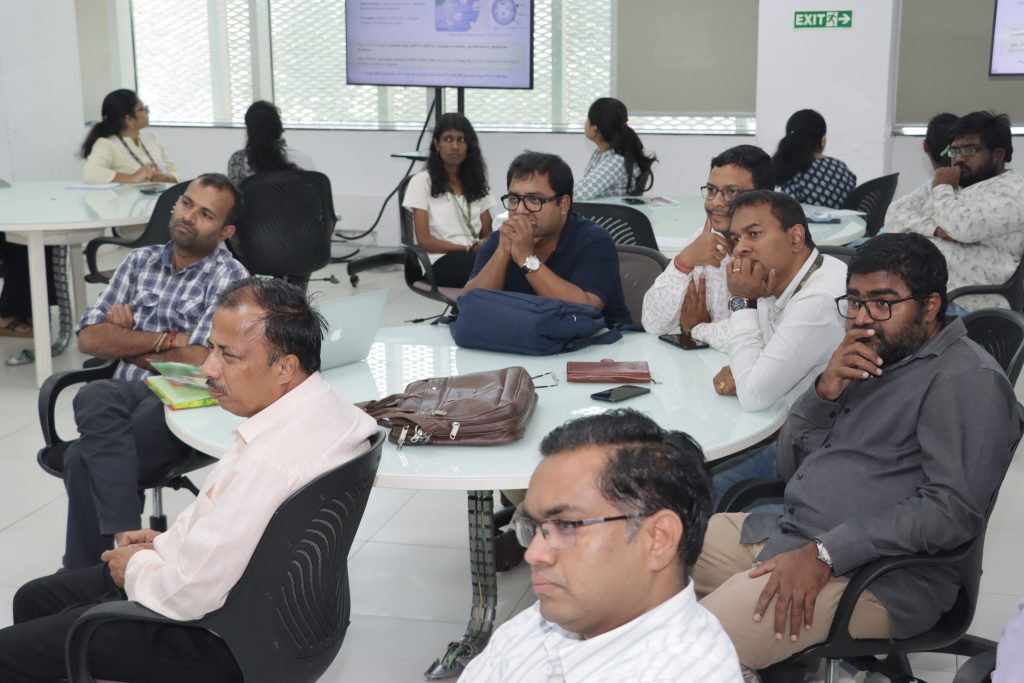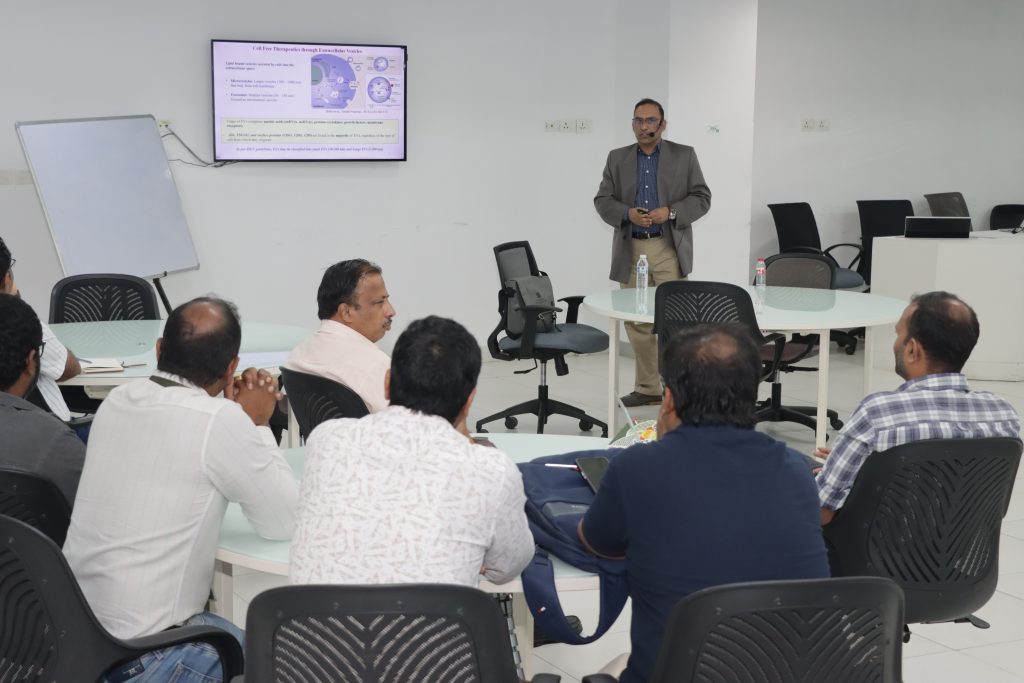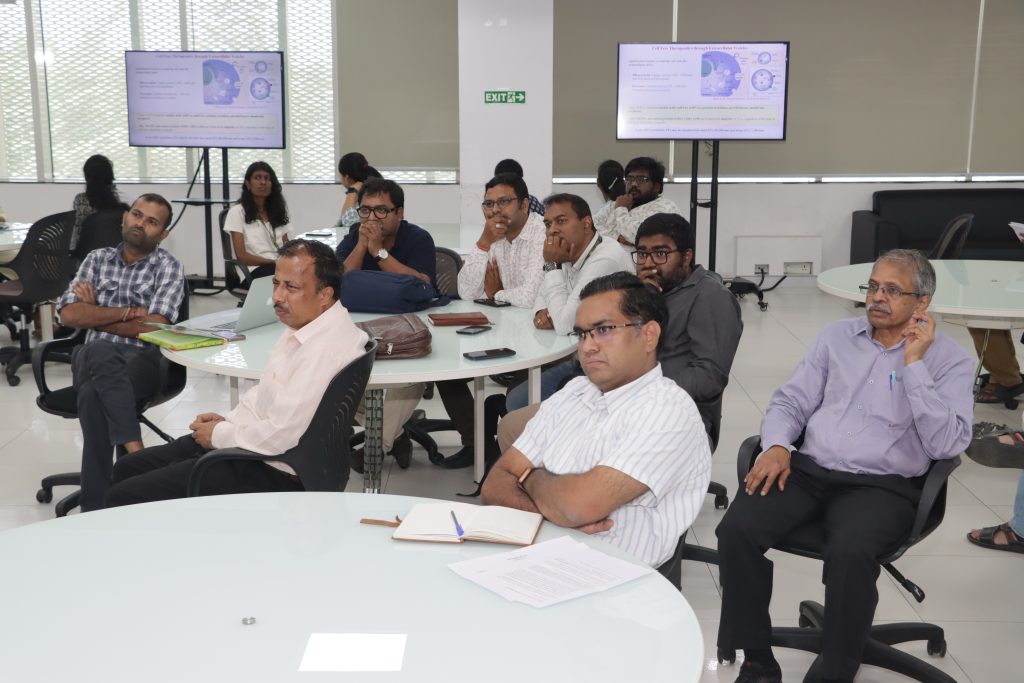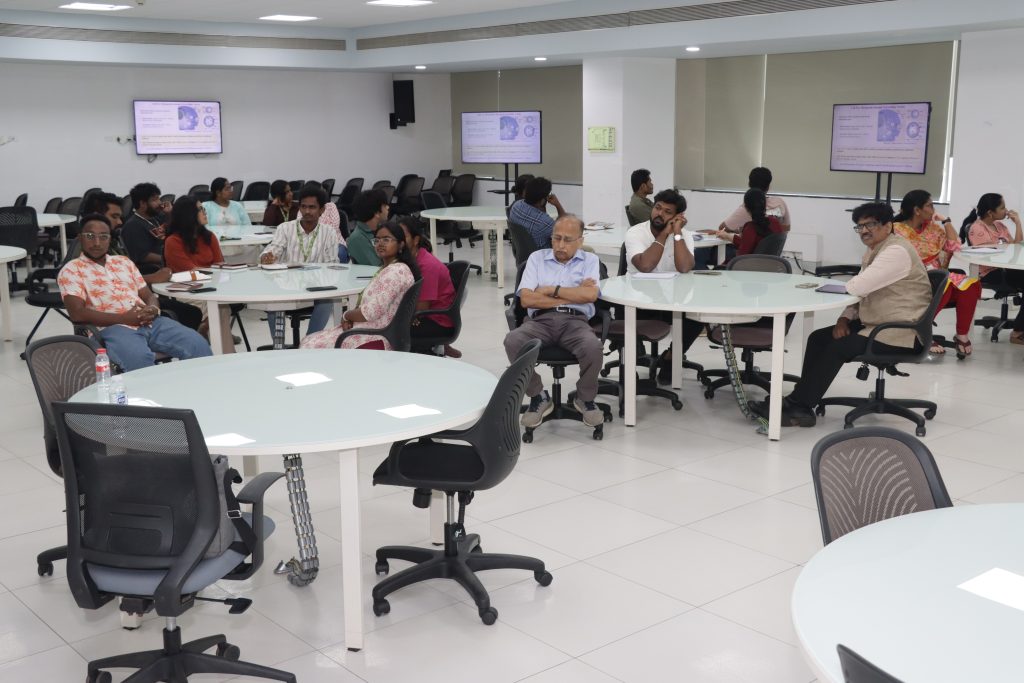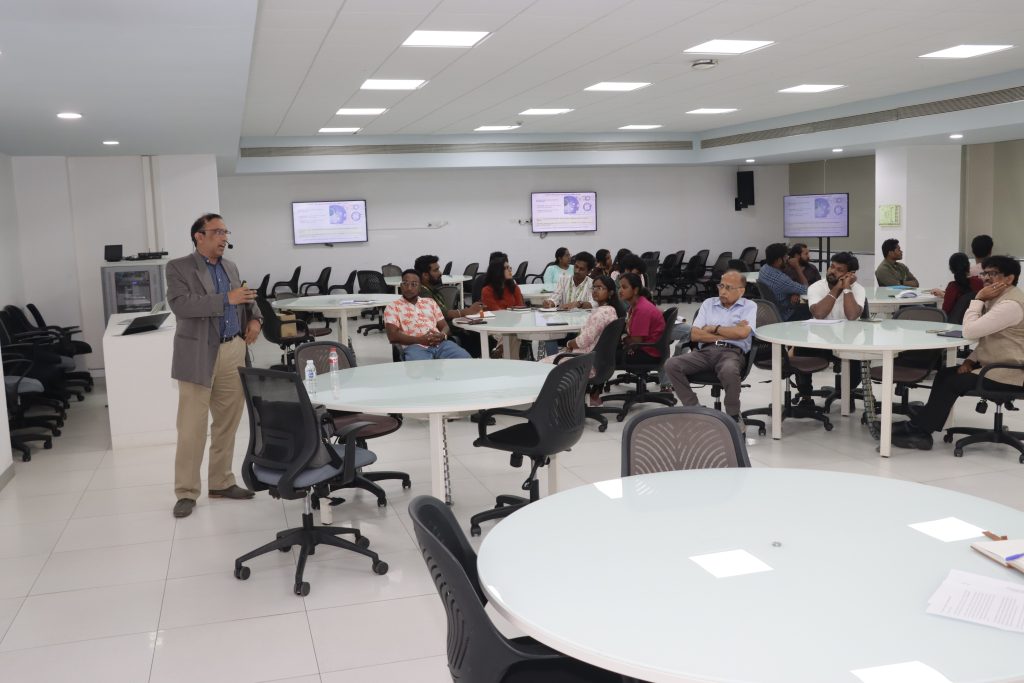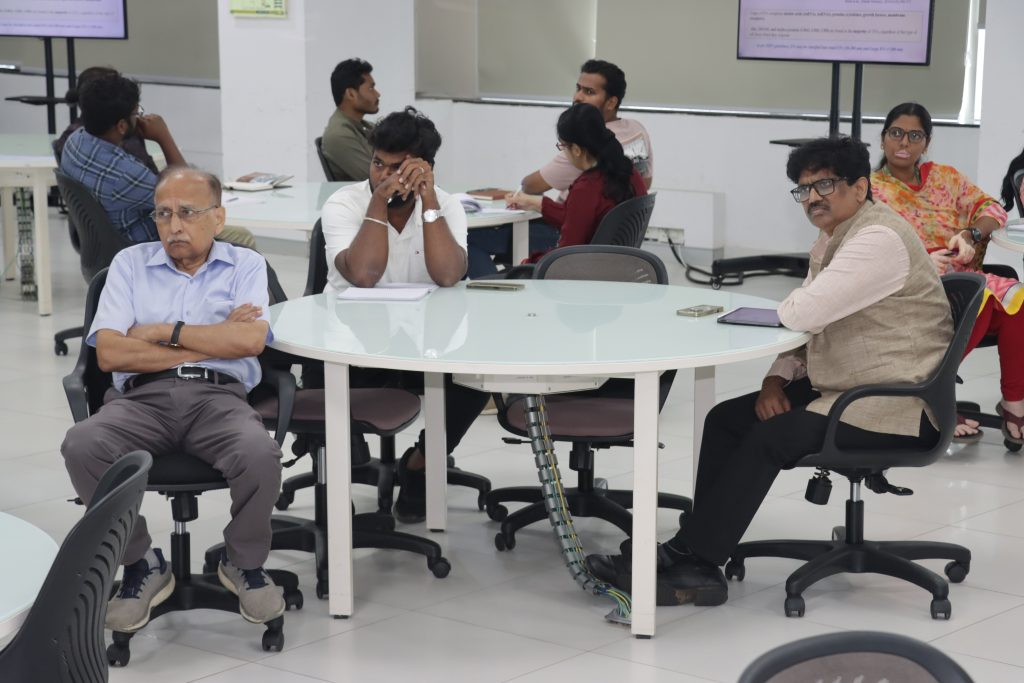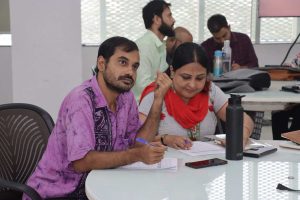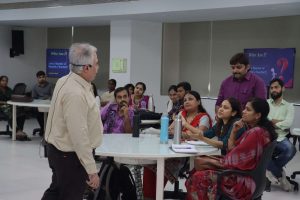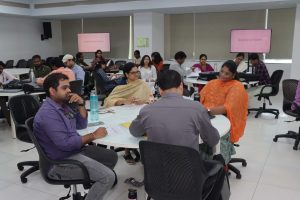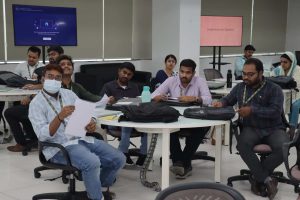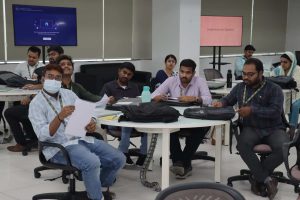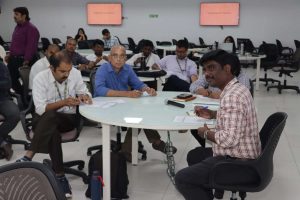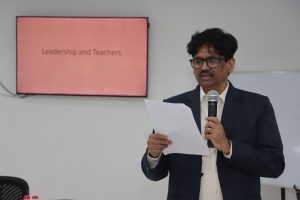- Chittoor Bhanu Prakash August 5, 2025
- Dr Sahadeb Shit August 1, 2025
- Mr Junaid Alam July 31, 2025
- Lecture on Neurodegenerative Diseases July 30, 2025
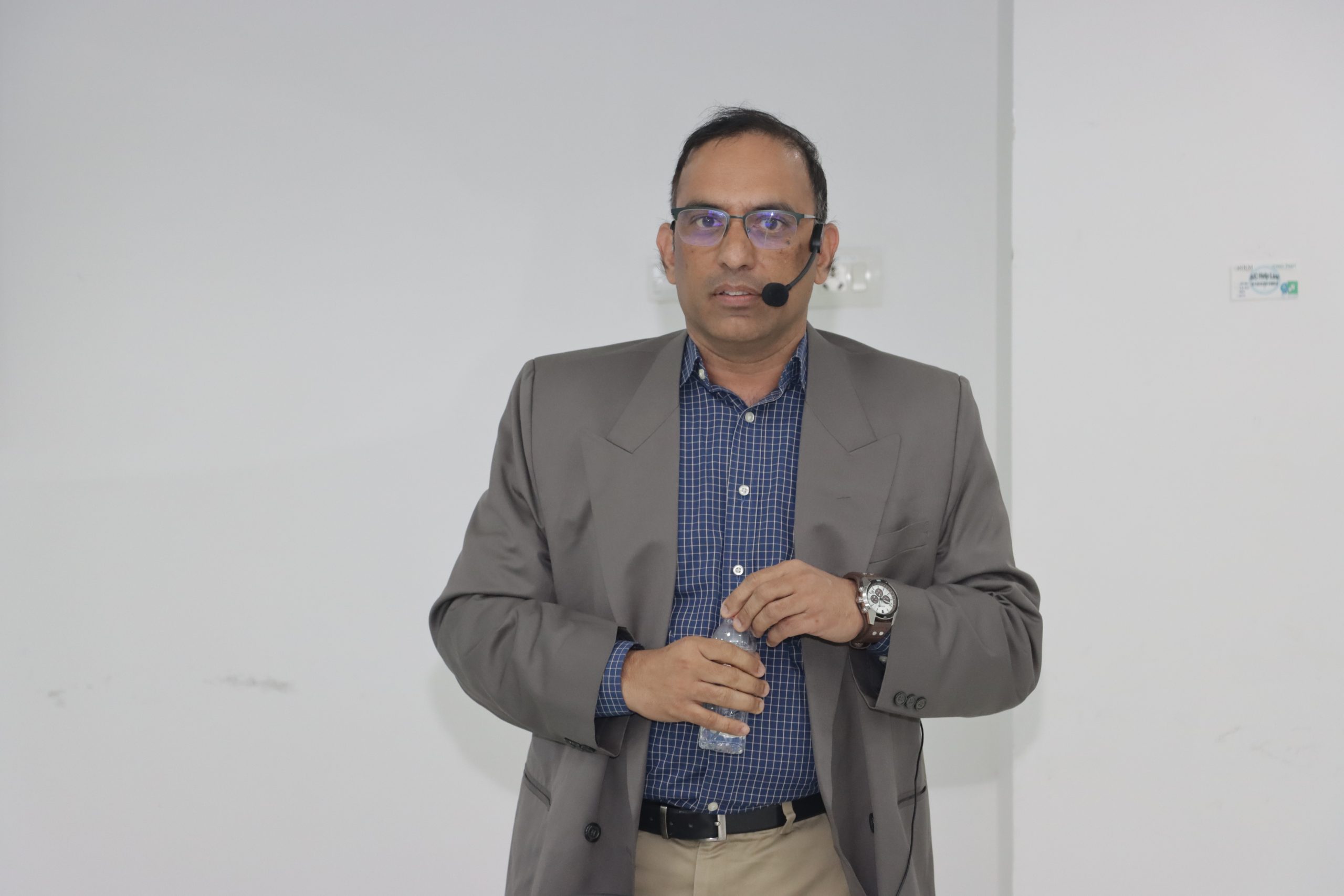 The Department of Biological Sciences at SRM University-AP hosted an impactful expert talk on Emerging Therapeutic Strategies for Neurodegenerative Diseases featuring the renowned educator and biologist, Dr Maheedhar Kodali. Dr Maheedhar Kodali from the Department of Cell Biology and Genetics at Texas A&M University and Cellular Neuroscience shared his extensive knowledge in the subject that saw a huge participation from students and researchers alike.
The Department of Biological Sciences at SRM University-AP hosted an impactful expert talk on Emerging Therapeutic Strategies for Neurodegenerative Diseases featuring the renowned educator and biologist, Dr Maheedhar Kodali. Dr Maheedhar Kodali from the Department of Cell Biology and Genetics at Texas A&M University and Cellular Neuroscience shared his extensive knowledge in the subject that saw a huge participation from students and researchers alike.During his lecture, Dr Kodali delved into the latest advancements in various interconnected fields, including neurodegeneration, cell biology, genetics, and biomedical sciences. His insights on the current research trends and challenges faced by these disciplines, offered a comprehensive understanding of how they interrelate. This was especially vital in an era where the understanding of neuro degenerative diseases is more crucial than ever.
The event was structured to encourage active participation through interactive sessions. Participants were engaged in discussions that promoted knowledge exchange, allowing attendees to ask questions and share their own insights. These collaborative exchanges not only enriched the experience for all involved but also laid the groundwork for future interdisciplinary research opportunities.
One of the primary goals of Dr Kodali’s talk was to enhance scientific awareness among the participants. By sparking academic curiosity and stimulating intellectual discourse, he supported the professional development of attendees, encouraging them to pursue their interests further and potentially spark new research initiatives.
The expert talk not only disseminated knowledge but also cultivated a community of learning and exploration, underlining the importance of collaboration in advancing scientific discovery. Dr Kodali’s presence and expertise provided an exceptional platform for engagement and inspiration, aligning with the university’s mission to promote innovative research and academic growth.
Continue reading → - Transforming Teaching Through Upskilling July 30, 2025
In an effort to upskill the faculty and to align them with the contemporary methodologies and classroom management techniques, the Teaching Learning Centre has launched a five-day faculty Development Programme.
The five-day upskilling session will see the presence of eminent educationists and trainers, including Vice Chancellor Prof. Manoj K Arora, Pro-Vice Chancellor Prof. Ch Satish Kumar; Prof. Edamana Prasad, Head-Teaching Learning Centre, IIT Madras; Dr S Mannathan, Associate Director-Teaching Learning Centre, SRM AP; Ms Rupa Murghai, Head-Wellness Centre, B M L Munjal; Dr Karthik Rajendran, Associate Director-QAR; Dr Srabani Basu, Associate Professor; and Dr Manikandan V M, Associate Professor.
The inaugural session featured Vice Chancellor Prof. Manoj K Arora, who delivered a compelling presentation on “Introduction and Goal Setting for Teaching & Learning.” Prof. Arora began the session on a reflective note, asking, “What is education, and why is it important?” In his remarks, Prof. Arora emphasised that students today are exceptionally smarter, and as a teacher it is important that we rise up to the challenge, not just by staying informed, but also by staying ahead of them.”
He also referenced an important question by a student, which he implored every educator to work upon and which encapsulates the concept of inclusive and adaptive teaching and learning:“If I can not learn the way you teach, will you teach me the way I can learn?”
Pro-Vice Chancellor, Prof. Ch Satish Kumar, during his session on “Leadership and Teachers” analysed leadership styles among teachers. He also quoted the Gurukul system, where the teacher used to be at the centre of power, the roles have now been reversed; However, the influence of a teacher continues to surpass generations. He remarked, “Leaders do not just lead, they have this power to influence people, a teacher is the same, their influence goes beyond the classroom.”
The five-day event touched upon relevant topics such as Multiple Intelligence,Learning Outcomes,Technology in Teaching,Active Learning Strategies,Student Mental Health, the Use of AI in Education, and Storytelling in Teachin to name a few.
The SRM AP aims to facilitate such constant upskilling in order to promote innovation, adaptability, and long-term career growth for individuals in an ever-evolving job market.
Continue reading →


